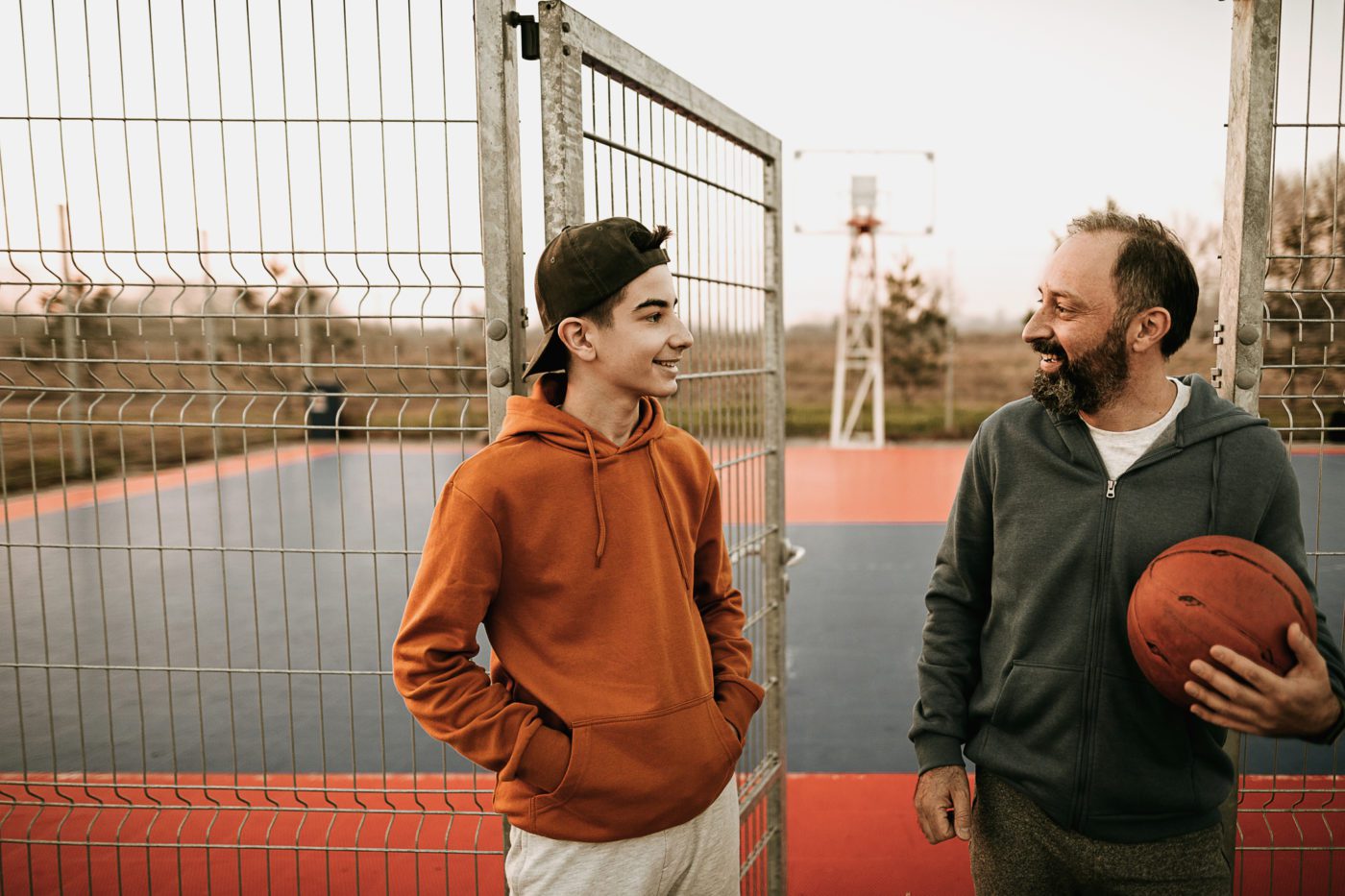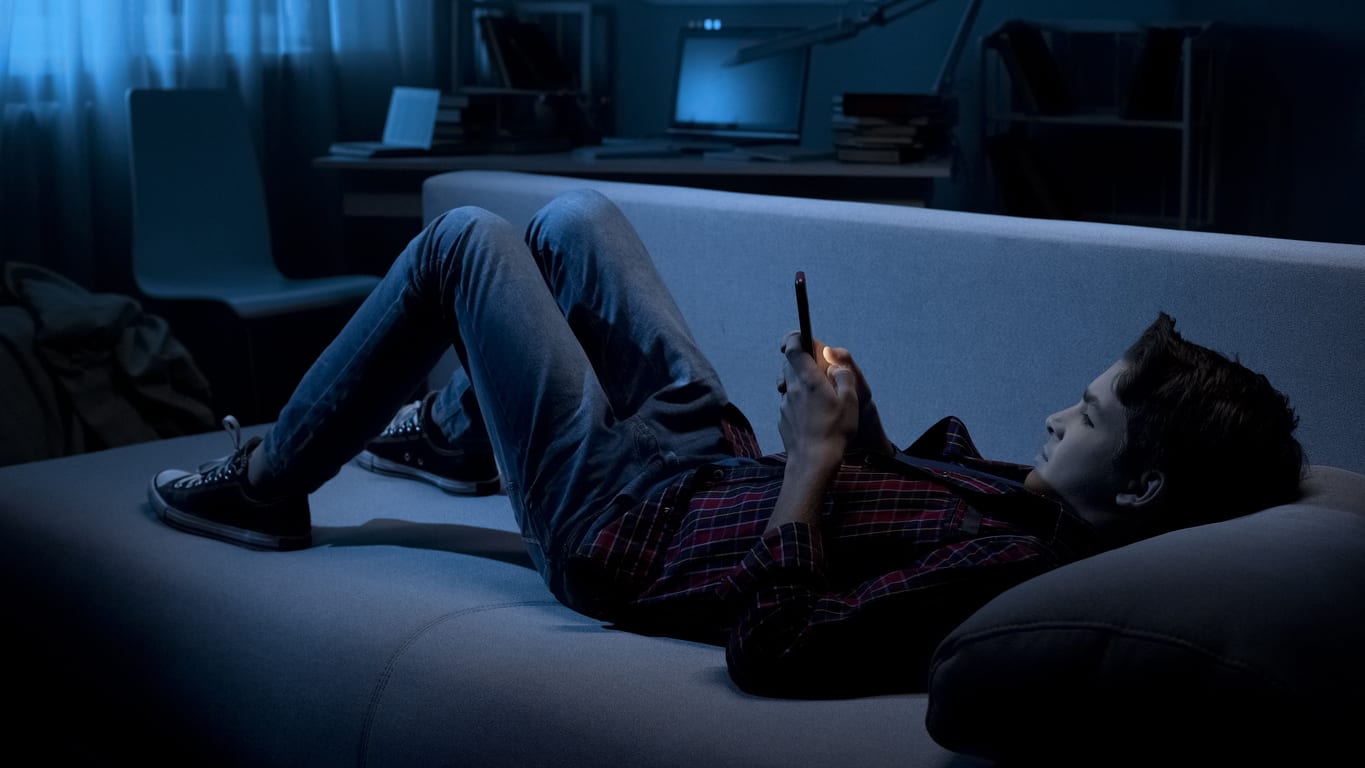Several months ago, I spoke to John Van Arnam, the founder and executive director of The Third Talk. His mission is to help parents initiate conversations with their kids in order to prevent exposure to online pornography. Van Arnam speaks to teens in schools about the dangers of porn and the effect it can have on relationships. Not only does he speak, he listens. He gets to hear teen’s beliefs on pornography firsthand.
We’ve written on All Pro Dad about the effects of porn, specifically the impact it’s having on our kids. We’ve drawn on many experts, but wouldn’t you like to know what kids are saying about it? Jazz trumpeter and composer Wynton Marsalis asked his students what the biggest difference was between his generation and theirs. Their shocking answer: Porn. It’s all around them, and they have plenty to say. Here are 5 things teens are saying about porn.
1. Adults won’t talk to us about it.
That’s a sad statement. John Van Arnam said he hears this from teens all the time. I once received an email from a parent upset that I had written an article about porn, saying, “What does porn have to do with my 10-year-old son?” This is my answer: Our kids are inundated with porn, and we have abandoned them to make sense of it alone. The images and messages that porn sends are confusing at best. At worst, they’re degrading, misogynistic, shame-inducing, and violent. If we don’t talk to our kids about this, then porn will help form their opinions about sex and relationships. That’s probably why many teens agreed with the next statement.
2. It may not be accurate, but it gives us helpful info about sex.
According to a survey by Common Sense, 45% of teens believe that porn gives helpful information about sex while only 27% think it shows sex accurately. I’m glad to see that neither of these percentages are a majority, but it’s still high, especially the number of those who think it’s helpful. This is the most troubling of all of teen’s beliefs on pornography. That means they are turning to porn to form their opinions about sex. Healthy sex involves love, connection, intimacy, trust, and commitment. Porn doesn’t involve any of that. Even the physical acts are often humiliating for the people involved, especially the women. It’s the last place kids need to be learning about sex.
3. Most of us have seen violent porn.
According to the same study by Common Sense, over 50% of teens had seen violent porn. That’s porn that includes “rape, choking, or someone in pain.” Think about that stat. That means if you have two kids, it’s likely that one of them has viewed this type of porn. Every parent wrongly assumes that their kid would never. Don’t be that parent. Assume that the stats line up with your kids, and talk to them. Having safeguards and internet controls is excellent, but those safeguards don’t extend beyond your house and devices. Prepare them to encounter this type of content, the damage it causes, and what to do when they’re confronted with it. Jesus said in Matthew 6:22, “The eye is the lamp of the body. If your eyes are healthy, your whole body will be full of light. But if your eyes are unhealthy, your whole body will be full of darkness.” The images we look at impact our thoughts, perceptions, and attitudes.
4. We typically see it at a sleepover or the bus ride home from school.
This was another point John Van Arnam told me kids say. Your first response may be to never allow your child to go to a sleepover or ride the bus. If that’s the course of action you take, that’s understandable and certainly not wrong. But the reality is, you’re not going to be able to provide airtight security around your kids at all times. They will encounter porn at some point, and I think it’s best to prepare them. In a video interview on The Third Talk website, kids speak about the addictive nature of porn. Make sure your kids know the dangers porn poses to their lives and relationships.
5. When adults do talk to us, it’s encouraging.
Teens reported in the Common Sense study that when a trusted adult did speak to them, it encouraged them to learn about sex and sexuality apart from pornography. This was a more uplifting stat that came from the Common Sense study because it shows that caring adults have an impact. We just have to take the initiative. Unfortunately, the study affirmed the first point. Close to 60% of teens have never had a discussion about porn with a trusted adult.
Sound off: Which of these teen’s beliefs on pornography do you find most troubling? What should we do about it?











Huddle up with your teens and ask, “Do you think these stats are true?”